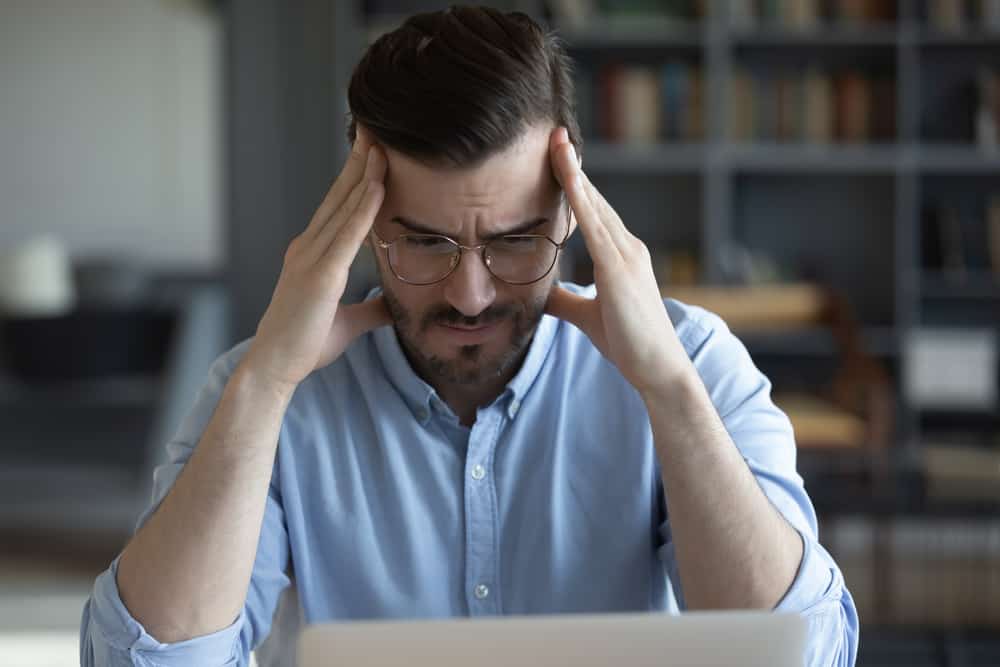“Why won’t my headache go away?” If you find yourself asking this after a car accident, you are not alone. A headache is one of the most common car accident injuries and it can be one of the most frustrating. Headaches are a typical symptom that indicates further medical attention is needed. While some headaches go away after 30 minutes, others could continue to bother you for days, weeks, to months after the collision. It is essential to know what red flags to look out for and when to see a doctor.
In this article, we answer some common questions about headaches after a car accident and how to best treat them.
What Causes Headaches After A Car Accident?
There are many different reasons why a person who has been in a car accident may experience headaches. The intensity and duration of the headaches depend largely on the nature and severity of your accident as well as your physical health. Here are some of the most common causes of headache after a car accident:
- Whiplash headache: Whiplash is caused by the neck being violently jerked backward or forward, causing headaches, nausea, and dizziness, accompanied by neck and shoulder pain.
- Muscle spasms or muscle contraction headaches: This type of headache occurs when certain muscles in the neck that are prone to spasms are unable to relax after the car accident. These muscles can get locked up, which can lead to pain and headaches.
- Post-Concussive Headache: Headaches after concussions are called post-concussive headaches. A concussion is a type of traumatic brain injury (TBI) that causes the brain to move inside the skull and disrupt normal brain function. Post-concussion headaches are often accompanied by nausea, fatigue, and dizziness.
- Pinched Nerve Headaches (Occipital Neuralgia Headaches): When a car accident damages a person’s spine, nerves in the area may become pinched or compressed, causing a variety of symptoms like numbness in the arms or legs, cramping, and headaches that last for several days or longer. Muscle knots (myofascial trigger points) that cause pain in the back of the head can also cause headaches after a car accident. These headaches may be accompanied by a feeling of pressure or pulling in the head.
- Fracture headache: Fracture headaches usually begin suddenly and may feel like a pounding or aching pain on one side of the head, neck, or back. The pain may travel to the forehead, temple, or both. Other symptoms may include nausea and sensitivity to light.
- Post-traumatic headache: Head and neck trauma during an auto accident or other traumatic event can cause post-traumatic headaches. The headache typically appears within hours to days after the accident, but it may sometimes be delayed.
After Auto Accident Headache Symptoms You Shouldn’t Ignore
As mentioned above, headaches are common injuries after a car accident, but you should be careful not to wait too long to treat them. If a headache lasts more than a day, it is a good sign to get checked by a doctor. Other warning symptoms to watch out for include:
- Intense to sudden pain
- Loss of consciousness
- Loss of memory or confusion
- Dizziness or balance problems
- Vision or hearing problems
- Head tightness or pressure across the sides, back, or forehead
- Scalp, neck, and shoulder muscles that are tender to the touch
- Nausea and other neurological symptoms like balance problems, numbness, paralysis, etc.

What To Do With Constant Headaches After Car Accident
If a headache persists after a car accident, you should go to a doctor. It is also a good idea to go to the doctor if the headache is accompanied by other symptoms such as blurred vision, nausea, or dizziness. Going to a car accident doctor can help you determine the cause of headaches and implement the most appropriate treatment plan for you.
It is also important to take the time to rest. This will help to reduce the pain and allow your body to recover. Make time for de-stressing activities like yoga, meditation, and spending time with your loved ones to help reduce stress, another factor that makes headaches worse.
How We Treat Headaches At Killeen Chiropractic
We understand headaches best, and we work to create quality and lasting treatments for headaches.
There is no one-size-fits-all treatment for headaches. That is why our team of chiropractors determine the main cause of headaches to create the most suitable treatment for your condition. Your personalized treatment depends on the kind of headaches you are experiencing, the location of the pain, the severity, and other symptoms you may have.
Receiving good chiropractic care can help treat and prevent almost all kinds of headaches. By addressing spinal issues like compressed nerves and trauma, we can address the root cause of the pain through chiropractic adjustments. This relieves pressure on the nerves and restores proper nerve communication to and from your brain.
We also provide each patient with stretches, exercises, and therapeutic massages that can help further relieve the pain and prevent future attacks.
Frequently Asked Questions On Headaches After Auto Accident
Do you have more questions on car crash headaches? See more resources to help you below.
How Long Should A Headache Last After A Car Accident?
There is no set length of time that head pain should last after an accident. It all depends on the severity of the pain and how long it lasts. If it is not severe and does not last for more than 24 hours, then it is unlikely that you have suffered any serious injury to your head. However, if you are experiencing chronic pain and cannot stop experiencing it for more than 24 hours, then you should seek medical attention immediately.
Why Do I Have A Headache After A Car Accident Even When I Didn’t Hit My Head?
It’s possible to have a headache after a car accident even if you didn’t hit your head. In fact, up to 80 percent of people who suffer from chronic headaches have some form of neck pain, which can lead to headaches due to the strain that it puts on the neck muscles. These types of headaches are usually accompanied by pain in other areas of the body as well.
Headaches without hitting your head may be a symptom of a concussion and TBI. These are caused by a violent jolt of the neck, upper body, and head other than a direct impact on the head.

How Do You Manage Pain From Post-Traumatic Headache?
If the pain in your head after a car accident persists, it can begin to affect your life. If the pain is too much to handle, you may even begin to avoid activities that you normally enjoy. Luckily, there are ways to manage the pain from post-traumatic headache. Here are some tips on how to treat headaches from car accidents to make the pain more manageable:
- Avoid stress: Some people experience headaches as an effect of stress. If stress is triggering your post-traumatic headaches, try to find ways to relax. Try to find ways to reduce the stress in your life in general. –
- Exercise: Physical activity can help relieve pain. The exact mechanism behind exercise-induced pain relief is not fully understood, but it is widely accepted in the medical community.
- Get enough sleep: Sleep is a critical part of the healing process. Make sure you get enough sleep to allow your body to heal.
- Eat healthy foods: Eating nutritious foods can help your body to heal. It can also reduce the chance of other health issues that are caused by poor diet.
- Take medications: If you have tried everything else and the pain still won’t go away, let your doctor know right away.
- Drink plenty of water: This can help reduce headaches and increase your recovery time.
- Follow treatment plan: Make sure to work through the prescribed treatment plan so that you can work toward your maximum medical recovery.
Headaches after a car accident can be very frustrating and debilitating for both the person who is experiencing them and their loved ones. While it can be tempting to just let the pain go, it is important not to ignore your symptoms. If you are experiencing a headache after a car accident, visit Affordable Chiropractic in Killeen, Texas for a comprehensive treatment plan created to help you get back on your feet.

